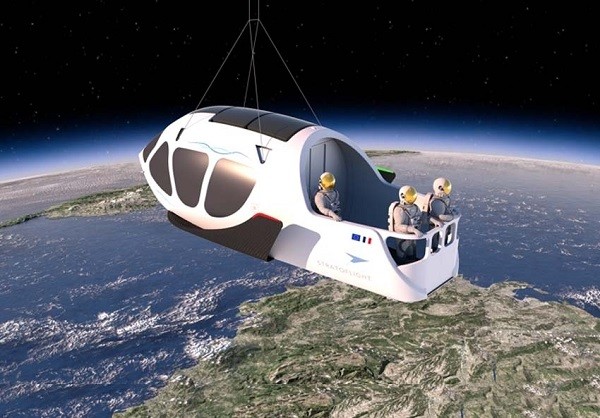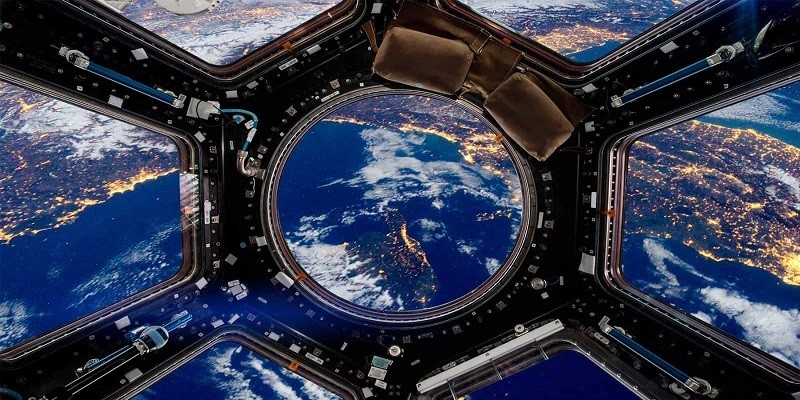The New Frontier: Exploring the Potential of Space Tourism
Space tourism is an emerging industry with immense potential for exploration and growth, offering a unique and once-in-a-lifetime experience for adventurous travelers seeking to venture beyond the Earth’s atmosphere. In recent years, advancements in technology and decreasing costs have paved the way for commercial space travel, allowing individuals to fulfill their dreams of space exploration.
With companies like SpaceX and Virgin Galactic leading the way, space tourism is no longer a distant dream but a tangible reality. As more people become interested in experiencing the wonders of space firsthand, the future of space tourism looks promising and offers exciting possibilities for the adventurous and curious alike.
The Evolution Of Space Tourism

Space tourism has come a long way since its inception, evolving from a distant dream to a tangible reality. The rapid advancements in technology have paved the way for a new era in space exploration, with commercial ventures driving the growth of the industry. Let’s delve into the fascinating journey of space tourism and explore how it has transformed over the years.
Read More – AI in Healthcare: Transforming Patient Care And Medical Research
From Space Race To Commercial Ventures
The space race of the mid-20th century sparked global interest in space exploration. Governments competed to reach significant milestones, such as putting a man on the moon. However, in recent years, the focus has shifted towards commercial ventures, with private companies like SpaceX and Blue Origin leading the charge in opening up space travel to civilians.
Tech Advancements Driving Space Tourism
Technological advancements have played a pivotal role in enabling space tourism to flourish. Innovations such as reusable rocket technology and advancements in spacecraft design have made space travel more accessible and cost-effective. Cutting-edge technologies are continuously being developed to ensure the safety and comfort of space tourists.
Challenges And Opportunities
Embarking on the journey of space tourism presents both challenges and opportunities. As technology advances, the potential for commercial space travel grows, offering new frontiers for exploration and discovery. Overcoming technical, safety, and regulatory hurdles will pave the way for a thriving space tourism industry.
As space tourism continues to gain momentum, the industry presents a unique blend of challenges and opportunities. In this section, we will take a closer look at the regulatory hurdles and safety concerns that need to be addressed, as well as explore the vast economic potential and industry growth that can be unlocked through space tourism.
Read More – The Rise of Quantum Computing: Breaking Down the Complexities
Regulatory Hurdles And Safety Concerns
The realization of space tourism as a mainstream industry comes with its fair share of regulatory and safety challenges. Spacefaring ventures need to adhere to stringent regulations set by national and international authorities to ensure the safety of passengers and crew.
One key area of focus is the licensing and approval process. To ensure a safe and secure experience for space tourists, government agencies need to establish comprehensive guidelines and regulations that cover everything from vehicle design and manufacturing to crew training and emergency procedures.
Safety concerns also extend to the vehicles themselves. Extensive testing and continuous monitoring are necessary to ensure the reliability and integrity of the spacecraft. Manufacturers must adhere to stringent quality control measures and conduct thorough risk assessments to minimize the chances of accidents or malfunctions during spaceflights.
In addition to the technical aspects, the safety of passengers and crew on board must also be prioritized. Adequate emergency response protocols and evacuation procedures need to be developed to handle any contingencies that may arise during the journey.
Economic Potential And Industry Growth
Although space tourism poses unique challenges, it also presents unprecedented economic potential and opportunities for industry growth. The space tourism market has the potential to become a multi-billion-dollar industry, creating jobs and driving technological advancements.
One of the key economic drivers is the growing demand for unique and extraordinary experiences. With an increasing number of affluent individuals seeking once-in-a-lifetime adventures, space tourism provides a niche market that caters to this exclusive clientele.
Furthermore, the development of space tourism will lead to the creation of new industries and the growth of existing ones. Companies involved in spacecraft manufacturing, technology development, hospitality, and entertainment sectors can all benefit from the emergence of this fledgling industry.
In addition, space tourism has the potential to drive innovation and technological advancements. The challenges faced in developing spacecraft and ensuring passenger safety can lead to breakthroughs in engineering, materials science, and other related fields. Investments in research and development can have far-reaching implications beyond the realm of tourism, benefiting society as a whole.
Overall, while the challenges in the regulatory and safety aspects of space tourism cannot be underestimated, the economic potential and industry growth that it promises make exploration of this new frontier all the more exciting.
Read More – Navigating the Future: The Evolution of Autonomous Vehicles
The Space Tourist Experience
Space tourism has emerged as a thrilling new frontier, offering everyday individuals the chance to venture beyond Earth’s atmosphere and experience the wonders of space. The space tourist experience encompasses training for space travel and the unique aspects of life in space including accommodations and activities.
Training For Space Travel
Before embarking on their journey to space, space tourists undergo thorough training to prepare them for the challenges and exhilaration of space travel. This training includes:
- Physical fitness regimen to enhance endurance and strength
- Education on the basics of spaceflight and zero-gravity movement
- Mental preparedness to handle unfamiliar environments
- Simulated space missions to recreate the experience of launch, landing, and spacewalks
Space agencies and private space companies ensure that space tourists are equipped with the knowledge and skills necessary for a safe and successful space journey.
Life In Space: Accommodations And Activities
Once in space, space tourists are treated to a remarkable experience unlike any other. The accommodations provided are carefully designed to accommodate the unique challenges of living in zero gravity. Such accommodations include:
| Accommodations: | Activities: |
|---|---|
|
|
Life in space offers space tourists an unparalleled sense of awe and wonder while allowing them to contribute to scientific discoveries. These unique activities make the space tourist experience truly unforgettable.
Environmental And Ethical Considerations
When considering the future of space tourism, it is crucial to address important Environmental and Ethical Considerations. As we look towards venturing into space as tourists, we must evaluate the impact on Earth’s environment and ensure fair access and equity in this exciting new frontier.
Impact On Earth’s Environment
Space tourism has the potential to impact Earth’s environment, with rocket launches contributing to carbon emissions and potential debris entering the atmosphere. It’s essential to explore sustainable practices to minimize the ecological footprint.
Fair Access And Equity In Space Tourism
Ensuring fair access and equity in space tourism is critical to prevent disparities among individuals and nations. Regulations must be in place to promote fair opportunities for all to participate in this futuristic travel experience.
Frequently Asked Questions
What Is Space Tourism And How Does It Work?
Space tourism refers to the commercial activity of sending private individuals to space for recreational or leisure purposes. It involves using specialized spacecraft to transport tourists beyond Earth’s atmosphere for a unique and thrilling experience.
What Are The Potential Benefits Of Space Tourism?
Space tourism has the potential to open up new frontiers in exploration, advance scientific research, stimulate technological innovation, and inspire the next generation of space enthusiasts. It could also contribute to the expansion of space infrastructure and the development of alternative energy sources.
How Safe Is Space Tourism For Everyday Travelers?
Space tourism operators are committed to ensuring the safety of their passengers through rigorous training, testing, and adherence to strict safety protocols. While space travel involves inherent risks, ongoing advancements in technology and safety measures continue to enhance the overall safety of space tourism for everyday travelers.
What Are The Environmental Impacts Of Space Tourism?
Space tourism is being developed with a focus on minimizing its environmental impact. Innovations in propulsion systems and spacecraft design aim to reduce carbon emissions and waste. Additionally, companies are exploring sustainable practices to mitigate any potential environmental effects associated with space tourism activities.
Can Anyone Participate In Space Tourism, Or Is It Exclusive To Astronauts?
Space tourism endeavors to make the experience accessible to a broader audience, including individuals without prior astronaut training. While certain physical and health requirements may apply, efforts are underway to make space tourism more inclusive and attainable for a diverse range of participants, fostering a new era of space exploration and adventure.
Conclusion
As we gaze towards the stars, space tourism emerges as an exciting new horizon. The endless possibilities of experiencing space hold promise for a future where ordinary individuals can become interplanetary adventurers. Let’s continue to support and explore the potential of space tourism for a thrilling tomorrow.

